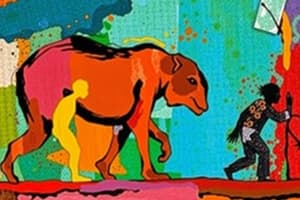Podcast
Questions and Answers
What is the systematic study of recorded human past known as?
What is the systematic study of recorded human past known as?
History
What is the study of distant past referred to as?
What is the study of distant past referred to as?
Pre-history
Archaeology is the study of fossils.
Archaeology is the study of fossils.
True (A)
Which of the following describes the importance of studying history? (Select all that apply)
Which of the following describes the importance of studying history? (Select all that apply)
Who is recognized as the father of history?
Who is recognized as the father of history?
What are primary sources? (Select all that apply)
What are primary sources? (Select all that apply)
What does the term 'chronology' refer to?
What does the term 'chronology' refer to?
The two widely used calendars are the Gregorian Calendar and the ______.
The two widely used calendars are the Gregorian Calendar and the ______.
What is the term for human beings evolving from lower beings through a slow, gradual process?
What is the term for human beings evolving from lower beings through a slow, gradual process?
Who proposed the theory of evolution?
Who proposed the theory of evolution?
Match the following australopithecine species with their details:
Match the following australopithecine species with their details:
Study Notes
History and Human Evolution
- History systematically studies recorded human past while pre-history examines the distant past.
- Archaeology focuses on fossils, which are remains of humans, animals, and plants.
Importance of History
- Understanding the past aids in comprehending the present and forecasting the future.
- It helps in recognizing national and international issues, including nationalism.
- Develops research and critical thinking skills.
Historiography and Historical Interpretation
- Historiography studies how knowledge of the past is acquired and communicated.
- The oldest written records date back to around 1000 BC in China.
- Key figures include Herodotus (father of history), Thucydides (critical historian), and Leopold von Ranke (father of modern historiography).
- Ethiopia features an indigenous tradition of history writing known as chronicles.
- Historical interpretation involves describing, analyzing, evaluating, and explaining past events.
- Historians should strive to remain unbiased.
Sources of History
- Primary sources are more reliable than secondary sources.
- General sources of Ethiopian history include fossils, inscriptions, codes of law, ruins, chronicles, and letters.
- These sources were produced in languages such as Sabean, Ge'ez, Amharic, Arabic, and Greek.
- Oral traditions reflect information passed down verbally.
Dating in History
- Dating expresses the timeline of historical events and determines the chronological sequence.
- Notable events include the Battle of Adwa on March 1, 1896, and the inauguration of the Ethiopian Renaissance Dam on April 2, 2011.
- Time units include decades (10 years), centuries (100 years), and millennia (1000 years).
- Chronology refers to the sequence of events over time.
Calendars
- The Gregorian Calendar tracks time based on the birth of Jesus Christ, denoted by BC (Before Christ) and AD (Anno Domini).
- The Islamic Calendar tracks time relative to Hejira (migration of Prophet Muhammad), using BH (Before Hejira) and AH (After Hejira).
- Hejira occurred in 622 AD.
Steps in Writing History
- Select a topic, gather diverse sources, interpret these sources, and write an accurate historical account.
Human Evolution
- Creationist view: humans were created by God.
- Scientific view: humans evolved from lower beings through a gradual natural process as described by Charles Darwin (1809-1882).
Hominids
- Hominids, ancestors of humans, appeared 25-40 million years ago.
- A notable group of hominids is the australopithecines.
Key Hominids and Discoveries
- Sahelanthropus Tchadensis: 6-7 million years old, discovered in 2001 in Chad.
- Ardipithecus Ramidus: 4.7 million years old, discovered in 1994 in Afar.
- Australopithecus afarensis (Lucy): 3.18 million years old, discovered in 1974 in Afar.
- Australopithecus africanus: 2.5 million years old, discovered in 1924 in Taung.
Genus Homo
- Includes Homo habilis, known as "handy human," indicative of early tool use.
Studying That Suits You
Use AI to generate personalized quizzes and flashcards to suit your learning preferences.
Related Documents
Description
This quiz covers the fundamentals of history and pre-history, exploring the systematic study of recorded human past and the significance of archaeology. It addresses the importance of understanding history in relation to present-day national and international issues. Test your knowledge on these essential concepts!




